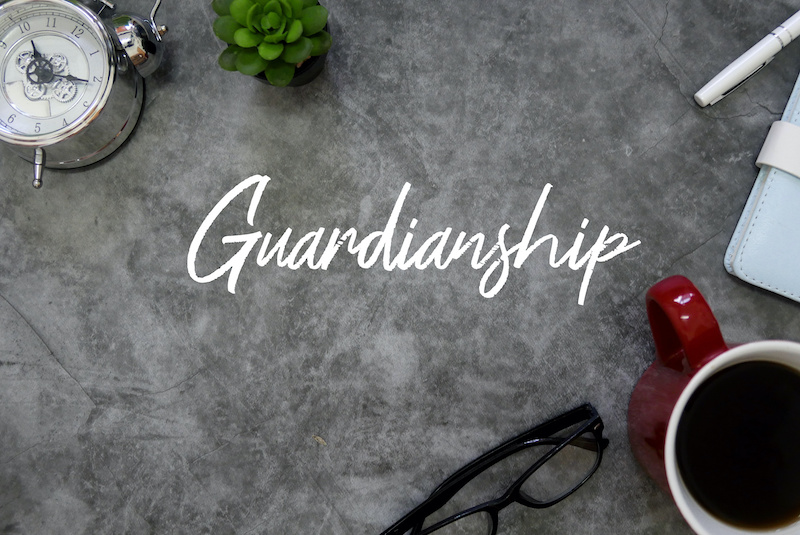
Guardianship and conservatorship are legal arrangements for individuals with developmental disabilities who can’t make important decisions or care for themselves in adulthood. Thus, establishing a legal guardian is the job of the court, which appoints a person (guardian) to make personal and financial decisions for individuals lacking the capacity to make those decisions for themselves. Finally, conservatorship is a similar legal relationship but focuses solely on financial decision-making.
In both cases, the court will refer to the adult with the disability as a protected person or ward and focus on the individual’s best interests. Therefore, it may limit the authority of the guardian or conservator to only those areas where the individual can’t make decisions.

High School to Adulthood Transition
When parental guardianship ceases at age 18, legal documents must be put in place to permit actions on behalf of adult children. Still, it’s the court’s responsibility to legally appoint the guardian or conservator. Courts mainly look to parents, older siblings, or sometimes outside interested parties for the role. If none exist, a professional guardian or conservator for hire is the next option.

Many students with special needs (intellectual and developmental disabilities) shift to guardianship via high school transition planning. The Individuals with Disabilities Education Act of 1990 says students leaving high school must work with schools and their parent or guardian during the transition when rights transfer to the student as a legal adult. At this time, school officials will often suggest parents become legal guardians to help their adult child navigate life. While courts must consider less restrictive alternatives, like supported decision-making or limited guardianships, typically, full guardianship is granted.
This transition requires planning and considerable thought to the following questions:

Is full guardianship or conservatorship a requirement? Or can less restrictive alternatives suffice, such as:
- Assistive or Supported Living Services
- Durable Power of Attorney
- Family Guidance
- Financial Representative
- Limited Conservatorship
- Limited Guardianship
- Special Needs Trust
- Successor Guardian
- Temporary Guardian
How Does a Disability or Special Needs Attorney Help?

A disability attorney or a special needs attorney can assist with setting up guardianship or conservatorship by advising on needs due to the individual’s circumstances and helping determine if a legal arrangement is required. They can prepare the necessary paperwork and file the petition with the court, initiating the guardianship or conservatorship process.
Elder law lawyers may also focus on representing individuals with special needs and their families throughout the process, including attending hearings and communicating with the court. Navigating the legal process can be complex and vary by state. An elder law, disability, or special needs attorney will take all necessary steps and meet all deadlines throughout the legal process.

Functions of a Guardian or Conservator
- Making Personal Decisions
A guardian may determine where they live, what medical treatments they receive, and other daily living needs. - Managing Finances
A conservator may manage finances, including paying bills, managing investments, and ensuring their financial needs. - Representing the Individual
A guardian or conservator may manage legal or financial matters. Usually, an attorney will advise the guardian or conservator and sometimes represent their position to the court. - Coordinating Care
The guardian or conservator may coordinate health care, ensuring they receive the support they need. - Advocating for the Individual
The guardian or conservator may advocate to ensure rights and interests are protected. - Coordinating with Other Programs
The guardian or conservator may also need to coordinate with other federal programs, such as Medicaid or Medicare, to ensure additional support. - Representing the Individual –
The guardian or conservator may represent or retain an elder law, disability, or special needs attorney for interactions with federal agencies in case of any benefit disputes.

About Skvarna Law Firm in Glendora and Upland, California
Let a skilled attorney assist with your estate plan. So, contact us today to learn about your options (909) 608-7671. We operate offices in Glendora and Upland, California. Therefore, we provide legal services for individuals living in San Bernardino, Los Angeles, Orange, and Riverside Counties. This includes the cities of Upland, Ontario, Rancho Cucamonga, Fontana, Colton, Rialto, Chino, Chino Hills, Glendora, Claremont, Montclair, Pomona, La Verne, San Dimas, Azusa, Covina, West Covina, Diamond Bar, Walnut, La Puente, Corona, Norco & Mira Loma. Visit SkvarnaLaw.com to learn more.


